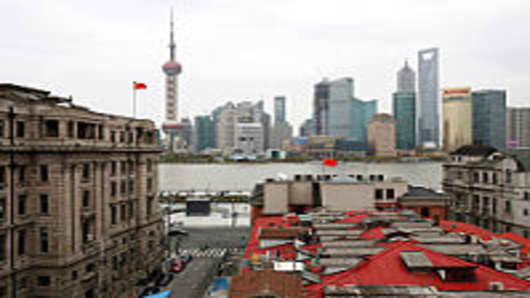Up until last week, China’s government had been making all the right moves to manage the financial crisis. Unlike the Obama administration, the Chinese government demonstrated it had a plan and the political capital to push that plan through. It forced state-owned banks to keep lending; created jobs by launching massive public work projects and cut corporate and personal income taxes to spur consumption.
The government triggered a painful but much needed economic shift from manufacturing to consumption by increasing minimum wages and appreciating the yuan by 8 percent.
The net result is that China has so far staved off the worst of the world's economic ills. Retail sales have grown 16-18 percent annually. The stock market almost doubled from its lows, and GDP has grown around 9 percent annually.
China’s good times, however, might end after a major policy mistake by the central bank last week that could spur rampant inflation and trigger a speculative and very dangerous bubble in the real estate sector. The central bank dropped the reserve ratio requirement for banks by 50 basis points, signaling an end to the tight monetary policies needed to stave off inflation.
At first glance it is understandable why China’s economic planners took such a step. Faced with a contracting factory sector — the PMI index dipped below 50 last month for the first time since February 2009 —, rising fears of a euro zone collapse, and a cooling real estate sector, the central bank felt it had to ease its tight monetary policy. But, it should not have.
Essentially, the central bank signaled to the market that real estate is a one-way bet up because as soon as prices soften, the government will basically bail out developers who have unwisely taken on too much debt. Until last week for the first time in a decade, developers, companies and everyday Chinese realized real estate prices could drop and were beginning to be more cautious when investing.
Before then, as soon as people had a little money, they funneled it into real estate with seemingly little thought. If you look at the bottom lines of Chinese companies traded on the A-share market, much of their profits came not from selling widgets but real estate investments. Everyone and his aunt became real estate speculators. Shoe companies became real estate developers. Letting a major developer go bankrupt would have forced investors to be more cautious.
Fears of a real estate bubble in China have been exaggerated. A drop of 20 percent does not threaten a systemic risk. For years, there has been little debt on the residential side so there would not (and has not been) panic selling when prices softened. Strict regulations on mortgages the last two years have also kept homebuyers out of the market but created massive pent up demand.
My firm conducted interviews with hundreds of Chinese families and found huge pent up demand for housing once the government eases regulations. But the policy shift last week has created a slippery moral hazard, much as the bailing out of Wall Street in 2008 led to continued irresponsible behavior by Jon Corzine and MF Global to borrow $40 for every dollar in the bank.
By loosening the monetary policy so early, China’s central bank also sent the signal to local officials that real estate would continue to be a major revenue stream – both by land sales and tax revenue. This is unhealthy as far too many local governments generate the majority of tax revenue from the real estate sector. This reliance on easy tax revenue has stopped them from promoting actively enough small and medium enterprises, which should be the backbone of job creation.
The central bank should have kept a tight monetary policy not just to stave off inflation but also to send a clear message to real estate developers, speculators, and local officials that the real estate sector cannot play such an outsized role in the economy.
Now, everyday Chinese will bear the brunt of the policy by facing continued unaffordable housing and rising inflation while Porsche and Lamborghini-driving real estate developers, who made poor investments and are overleveraged, will be bailed out. Let’s hope the economy gets better soon before we see China’s version of Occupy Wall Street targeting developers.
Shaun Rein is the founder and managing director of the China Market Research Group (www.cmrconsulting.com.cn) a strategic market intelligence firm, and is based in Shanghai.
He is the author ofthe upcoming book “The End of Cheap China: Economic and Cultural Trends that will Disrupt the World”published by John Wiley & Sons in the U.S. He does not own shares in any company mentioned. Follow him on Twitter at @shaunrein.


